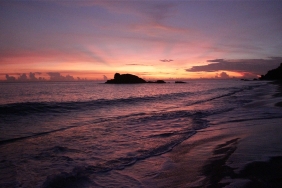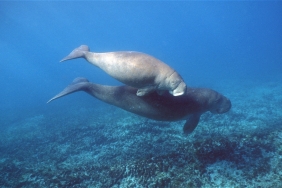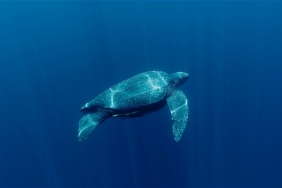ONE MORE STEP TOWARD DESIGNATING AREAS FOR NATURAL RESOURCE MANAGEMENT BASED ON SARANO WALI TRADITION, WAKATOBI
Three years have passed since the Sarano Wali Customary Law Society on Binongko Island, Wakatobi, strengthened local wisdom in managing resources both on land and at sea, which is called kaombo. Kaombo is a traditional institution that is carried out by the Cia-cia ethnic in Binongko. Literally, kaombo means forbidden. The meaning behind it is that there is a prohibition to take something that is not rightfully theirs, and if it is violated they will get sanctions, both sanctions for violating the kaombo prayers and customary sanctions.
In Sarano Wali, there are at least three kaombo's traditional governance, namely private kaombo, protected forest kaombo, and coastal kaombo. There is no person allowed to taking resources in customary areas for personal profit. The Traditional ownership resources have a social function as customary property and are used for customary and public interests.
There are many challenges in implementing kaombo. For example, there are still fishermen from other villages secretly fishing in the area. One of the reasons for this is that kaombo has not been thoroughly socialized, such as through information boards.
The Sarano Wali community, with its kaombo, is an example of a coastal customary management area. A combined social system between ecosystem arrangements to protect biodiversity, local community cultural values, and binding institutions that are formed, agreed upon, and implemented jointly by the community.
In an effort to obtain customary community-based management rights, WWF-Indonesia encouraged Sarano Wali Customary Law Society to obtain recognition from the Wakatobi Regent Regulation. To obtain it, refer to the Ministerial Regulation of the Ministry of Maritime Affairs and Fisheries No. 8 of 2018 and Minister of Home Affairs Regulation no. 52 of 2014, the Sarano Wali community must go through three stages. First, is the stage of identification of the legal community. Second, verification and validation of customary documents. Finally, we have reached the stage of determining customary law communities.
The Sarano Wali community has a traditional house called Baruga. This building is the gathering place for the process of verifying and validating the documents of the Sarano Wali Indigenous People. The Director General of Natural Resources, Ministry of Environment of the Republic of Indonesia, also visited Sarano Wali to ratify the Cooperation Agreement between Sarano Wali and the Wakatobi National Park Authority. Lakina Wali (Raja Sarano Wali), Jou Paladihu (Raja Adat Paladdihu), and Bonto Popalia signed the minutes of the meeting, together with the Sub-District Head, the Wakatobi National Park office, the committee, Danramil, and the Binongko Police.
The customary documents that are verified and validated in this stage include four aspects. First, the history of Sarano Wali Customary Law Society, boundaries of customary territories, applicable customary laws, lists of customary assets, and institutional systems or customary governance. "We hope that kaombo can be carried out continuously, uninterruptedly," said Fishermen from the Binongko Fishermen's Forum. The same support and hope also flows from other communities who also feel the abundance of fish after the kaombo is implemented.





